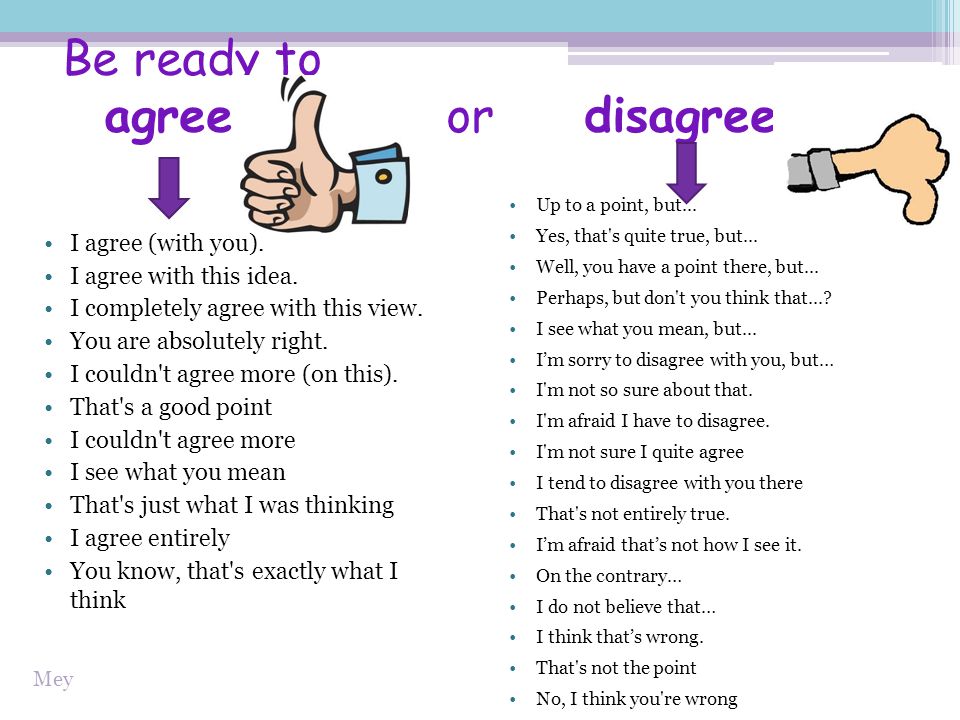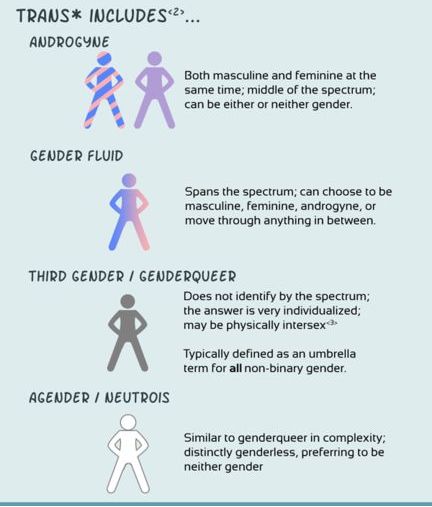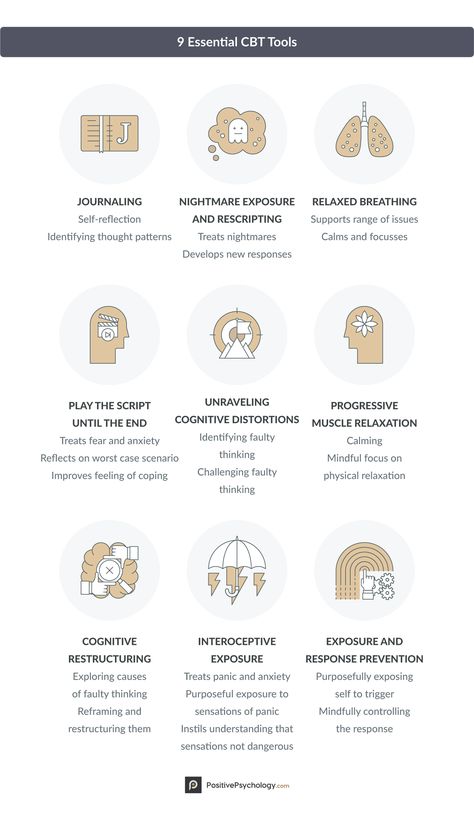You can t not communicate
You Cannot Not Communicate – Paul Watzlawick
Paul Watzlawick (1921 – 2007), photo: Martin Gertler, CC BY 3.0, via Wikimedia Commons
On July 25, 1921, the psychotherapist, psychoanalytic, sociologist, philosopher, and author Paul Watzlawick was born. He was best known for his approaches in the field of schizophrenia and his five axioms in the theory of communication.
“Our everyday, traditional ideas of reality are delusions which we spend substantial parts of our daily lives shoring up, even at the considerable risk of trying to force facts to fit our definition of reality instead of vice versa. And the most dangerous delusion of all is that there is only one reality.”
– Paul Watzlawick
Youth and World War II
One and a half years before Watzlawick’s school-leaving examination at the Peraugymnasium in Villach, Austria was annexed to Germany on 12 March 1938.[1] His father became known as an opponent of the National Socialists. Father and son continued to see each other as Austrians. After graduating from his school in Villach in 1939, Watzlawick was drafted. He was ordered to the Reichsarbeitsdienst, then to the Wehrmacht, to the Anti-Aircraft Gun Company. He qualified as an interpreter for the English language, worked as a translator during interrogations of English-speaking prisoners, felt understanding for the prisoners and began to translate incompletely. His manipulations have been discovered. He was arrested and taken to the remand prison in Stuttgart at the beginning of February 1945. Due to the end of the war and help from superiors, the detention ended soon. After the war he worked as an interpreter for the English.
Family Therapy and Working in the USA
In the 1950’s he attended the C.-G.-Jung Institute in Zurich for an apprenticeship in the field of psychotherapy and later worked as professor of psychotherapy in El Salvador, where he focused on communication and family therapy. In 1960, Watzlawick was recruited by Don D. Jackson as a member of the Palo Alto Group in Palo Alto, California, where he worked as a research associate at the Mental Research Institute. In Palo Alto, Gregory Bateson and Juergen Ruesch had already developed a communication theory from a cybernetic and psychiatric point of view in 1951.[3] In 1956, Bateson, Jackson, Haley and Weakland described paradoxical human communications for the first time and published their results.
Jackson as a member of the Palo Alto Group in Palo Alto, California, where he worked as a research associate at the Mental Research Institute. In Palo Alto, Gregory Bateson and Juergen Ruesch had already developed a communication theory from a cybernetic and psychiatric point of view in 1951.[3] In 1956, Bateson, Jackson, Haley and Weakland described paradoxical human communications for the first time and published their results.
The 5 Axioms of Communication
The five axioms developed by Paul Watzlawick explain human communication and its paradoxes. ‘One cannot not communicate’ means that humans communicate as soon as they perceive each other. From this it follows that every kind of interaction is communication. ‘Content and Relationship’ explains that every kind of communication contains aspects of content and relationship, whereas relationship is determining the content. Another axiom describes that communication always depends on cause and effect, meaning that communication is based on punctuation of the partner’s communication procedures. The 4th axiom describes that communication is based on spoken language as well as nonverbal actions, such as smiling or crying. Watzlawick here seperated digital communication with a complex syntax and analog communication with high semantic potentials. The last axiom deals with symmetric and complements, meaning that a relationship between partners is either equal or unequal, which determines interaction. The partners either try to rule each other or pursuit equality. Even though Watzlawick earned much respect for his theory, the critics made their statements, too. They discussed that in reality it is hard to apply all axioms on the relationships between several family members. Also it was mentioned, that the theory does not give hints on how the relationships between interacting individuals can approve.
The 4th axiom describes that communication is based on spoken language as well as nonverbal actions, such as smiling or crying. Watzlawick here seperated digital communication with a complex syntax and analog communication with high semantic potentials. The last axiom deals with symmetric and complements, meaning that a relationship between partners is either equal or unequal, which determines interaction. The partners either try to rule each other or pursuit equality. Even though Watzlawick earned much respect for his theory, the critics made their statements, too. They discussed that in reality it is hard to apply all axioms on the relationships between several family members. Also it was mentioned, that the theory does not give hints on how the relationships between interacting individuals can approve.
“We are spun into communication; even our self-consciousness hangs… of communication…. and[we] are – or for that very reason – almost incapable of communicating through communication.
”
— Paul Watzlawick, Menschliche Kommunikation. S. 42 f.
An Excess of Good always turns into Evil
Watzlawick took up Heraclitus‘ idea of “unity in the diversity” of things – enantiodromy – and pointed out that an excess of good always turns into evil. Too much patriotism creates chauvinism, too much security creates compulsion. In Lösungen (Solutions, 1974) Watzlawick speaks of second-order solutions when these behaviors are broken through by alternatives or reduction.
Later Years
Paul Watzlawick was able to earn respect from many established psychoanalytics and therapists and influenced many researchers following his footsteps in the field of communication and family therapy. Since 2008 the Vienna Medical Association has awarded the Paul Watzlawick-Ehrenring. Previous prize winners were Peter L. Berger, Aleida Assmann, Rüdiger Safranski, Friedrich Achleitner, Walter Thirring, Ruth Klüger, Konrad Paul Liessmann, Franz Schuh and Hartmut Rosa. Ágnes Heller also received an honorary prize for her life’s work in 2017. Paul Watzlawick died on March 31, 2007 in Palo Alto.
Ágnes Heller also received an honorary prize for her life’s work in 2017. Paul Watzlawick died on March 31, 2007 in Palo Alto.
References & Further Reading:
- [1] In German language, Anleitung zum Unglücklichsein, Paul Watzlawick
Piper Taschenbuch, 2009 - [2] Pragmatics of Human Communication: A Study of Interactional Patterns, Pathologies, and Paradoxes, Paul Watzlawick
W W Norton & Co, 2011 - [3] Paul Watzlawick Website
- [4] Paul Watzlawick at Wikidata
- [5] The Undiscovered Self – C. G. Jung and Analytical Psychology, SciHi Blog
- [6] Obituary at the Mental Research Institute
- [7] Paul Watzlawick – Wenn die Lösung das Problem ist – 1987, Josef Lienbacher @ youtube
- [8] Andrea Köhler-Ludescher: Paul Watzlawick: Die Biografie. Die Entdeckung des gegenwärtigen Augenblicks.
 Huber, Bern 2014.
Huber, Bern 2014. - [9] Jessica Röhner, Astrid Schütz: Essenzen – Im Gespräch mit Paul Watzlawick. Hogrefe Verlag, Bern 2021.
- [10] Timeline of Communication Theorists, via DBpedia and Wikidata
In This World, You Can’t NOT Communicate!
IN OUR WORLD – and in the world of business – virtually nothing is neutral. Sharks swim to stay alive – even while resting or sleeping. A carefully wrapped present says something quite different than a present that’s not wrapped so nicely.
Similarly, everything you do or don’t do, and everything you say or don’t say, communicates something to those around you.
As a leader this is vital because all eyes are on you – all the time.
People read into your comments and actions. Who gets recognized in a meeting regularly? Did it look like your mind was wandering during that conversation? Is your door often closed? Do you smile? Everyone creates perceptions of you based on your actions and their experiences and biases.![]()
The reality is – You can’t not communicate.
If that’s the case, you might as well get better at it.
Communicating in business
Effective leaders recognize their ability to achieve results from their direct reports – to generate engagement, to motivate, to get their team headed in the right direction – often succeeds or fails based on their ability to communicate.
Their business results, and their ability to move people to action, are achieved by communicating strategically and doing it well; they are Leader-Communicators.
In business, communication that has meaning is a difference maker. It can be used to build understanding, and make teams and individuals more efficient. It can be used to recognize good work and reinforce critical behaviors. It can be used to coach or mentor one person, or lead organizational change. It can share a vision, inspire confidence, strengthen a business and build a legacy.
Real communication is a differentiator that can make you a business superhero.
Become a “superhero”
It’s not that difficult to be a communication superhero. And when you consider the strengths it offers you as a leader, I’d say it’s relatively easy.
It might not feel that way all the time. In fact, sometimes it feels easier to just say nothing and keep going – but remember by not communicating you actually are communicating.
What does it take to communicate well? Just like any learned skill, practice – simple, consistent practice.
Here are a few tips to practice:
- Root all your communications in your business goals
- Understand the mind of your audience. Communicate in a way that will resonate with them
- Choose the right time and right vehicle for your communication
- Ask questions and solicit feedback to know if your audience truly understands you
- Express reactions and opinions without intimidating others
- Be present in conversations; don’t be distracted
- Visualize a mirror in front of you and consider what your body language says (are you making eye contact, do you have good posture, what are your facial expressions)
Like any great speaker, listen to feedback – then apply it and keep practicing.
Learn the skill; understand the fundamentals, practice, practice, practice.
You too can be a communication superhero!
Now that you know you can’t not communicate, what are you actually communicating today?
David Grossman, ABC, APR, Fellow PRSA, is one of America’s foremost authorities on communication and leadership, and a sought-after speaker and advisor to Fortune 500 leaders. David is the author of author of You Can’t NOT Communicate. He is also the CEO of The Grossman Group (www.yourthoughtpartner.com), an award-winning Chicago-based strategic leadership development and internal communication consultancy; clients include: Accor, AOL, GlaxoSmithKline, HTC, and McDonald’s.
Like us on Instagram and Facebook for additional leadership and personal development ideas.
Posted by Michael McKinney at 09:08 AM
Permalink | Comments (0) | This post is about Communication
What to do if you do not want to communicate with people.
 Instructions for introverts
Instructions for introverts
Irina Balmanzhi
Once upon a time there was a man. Not too sociable. In the mornings, he was terrified at the mere thought of going to the office and talking to people. In the evenings, he wanted to be alone as soon as possible, so he turned down all the offers of his colleagues to have dinner together. And on weekends, when his friends were "having fun" in noisy clubs, he would sit at home and read books.
If you think that this story is about you, then you are a real introvert. Do not worry. Are you okay. But you need to learn how to live with pleasure, not waste energy and succeed in this noisy world where most people are obsessed with communication.
An introvert in the world of extroverts
Some people cannot live without communication and new experiences. For them, there is no worse punishment than being alone for a long time. They need constant external stimulation to feel energized and alert. After a busy day at work, they would rather go to a fun, noisy party than spend the evening at home with a book in their hands. They easily make acquaintances, make decisions quickly and begin to act almost immediately. These are typical extroverts. And they are the majority in our world.
They easily make acquaintances, make decisions quickly and begin to act almost immediately. These are typical extroverts. And they are the majority in our world.
Today, many people believe that this is the only way to achieve success and recognition. The qualities of an extrovert are indeed very important in a variety of areas, for example, in a business where the emphasis is on teamwork, or sales. Generally, outgoing people are perceived as friendlier, more confident, and more helpful. Sometimes it seems that there is simply no place for introverts in the modern world.
For an introvert, dealing with reality can be real torture. Source
Does this mean that there is something wrong with quiet, thoughtful, solitude-loving introverts? And do they have to break themselves in order to adapt to the demands of our crazy world? Of course not. If only extroverts inhabited the planet, we would not have Sir Isaac Newton's law of universal gravitation, Albert Einstein's theory of relativity, Frederic Chopin's nocturnes, George Orwell's 1984, Steven Spielberg's Schindler's List, Sergey Brin and Larry Page's Google, Harry Potter by JK Rowling, Sunflowers by Vincent van Gogh.
It's time for all of us to get rid of our preconceived notions of introversion.
Do not confuse introversion with shyness: extroverts sometimes have this quality. A shy person is afraid of making a bad impression on others, but at the same time, he may want to communicate more. An introvert is simply tired and exhausted by an excess of external stimuli - vanity, noise, chatter.
Shyness and shyness can be fought, but temperament is given to us from birth and cannot be changed. Source
The main difference between an extrovert and an introvert is what gives each of them strength and what takes them away. An introvert draws energy from himself. In order to be cheerful and balanced, he needs full access to his thoughts, feelings and sensations. And an extrovert is literally charged from the outside world. He is just happy if there are a lot of people around and life is seething around.
Despite all prejudice, introverts can be just as confident, friendly, curious, and successful as extroverts. They just need much more silence, peace and solitude.
They just need much more silence, peace and solitude.
Choose what suits you
Accept yourself as you are. Stop feeling guilty about turning down an invitation to dinner in favor of reading a good book. If you like to dine in a restaurant all alone, feel free to do so. And, of course, there is nothing wrong with the fact that you prefer serious, meaningful conversations with your best friend to noisy parties.
Spend your free time the way you like it, not the way you think it should be done. Stay at home on New Year's Eve if that makes you happy. Skip pointless meetings. Cross over to the other side of the street to avoid idle chatter with casual acquaintances.
For an introvert, as for any person, relationships are important, but you should look for quality in them, not quantity. A narrow circle of friends is enough to be happy. Treasure loved ones, take care of them. Work with those colleagues whom you treat with sympathy and respect. Search among new acquaintances for those who you like. And don't force yourself to communicate with everyone else.
And don't force yourself to communicate with everyone else.
Spend energy only on the elect. Source
Seek to find an interesting, inspiring job that will use your strengths: perseverance, deep thinking, concentration, insight and sensitivity. While extroverts tend to excel in the public sphere, introverts tend to excel in theoretical and aesthetic activities. In many areas (for example, in art or science), it is impossible to achieve serious results without solitude.
The ideal option for an introvert is a home office. But if you are forced to work in a team, think about how to minimize the noise and fuss that distracts you from important tasks. Maybe you will agree with your superiors on a personal account and take on projects that do not require teamwork.
When you can put on the mask of an extrovert
A significant part of our personality is determined by genes, brain, nervous system. Nevertheless, we are able to adapt to the environment and expand the boundaries of our capabilities to a certain extent.
No introvert can become an extrovert. At the same time, almost everyone can learn how to maintain small talk, speak in public, contact strangers, and behave calmly and naturally during meetings.
Some introverts manage to hide their true selves for years. Of course, this should not be done. In many cases, it's better to stay in your comfort zone. However, sometimes circumstances force us to adapt to the world of extroverts. When there are no other options, you can pretend to be a little more active and sociable. But only for a while.
Introverts often have significant social and business meeting skills. Source
You don't have to wear an extrovert mask to live up to someone's expectations. But it can be put on briefly for key personal projects, for a job that you think is truly important, as well as for the people you love, or anything that you highly value. The main thing is to apply this method within reasonable limits and not forget about your true needs.
If you're doing something out of character for one of your key personal projects, don't suppress your character too hard or for too long. To avoid burnout, try to create "recovery niches" in your daily life. It could be a place where you go to be yourself (like the nearest park) or a period of time (say a short break between business calls).
Make an agreement with extroverts
It is not uncommon for introverts to marry or befriend extroverts. In such an alliance, it can be difficult for people to understand each other's needs: one person wants to have a party, and the second wants to spend time together; one dreams of going somewhere on the weekend, and the other is quite satisfied with a cozy sofa, favorite book and family board games.
There is no point in arguing over whose vacation option is better. It's just that what suits an introvert can be tedious and boring for an extrovert. And vice versa. The only way to peacefully coexist is to make an agreement whereby everyone gets what they need.
The ability to compromise is the key to a strong relationship. Source
For example, you can agree to go out half the time and stay at home half the time. The agreement also applies in the case when you come to your best friend for a bachelorette party, and she is sympathetic to your absence for three days on the eve of the wedding.
Be sure to discuss these rules with loved ones who are prone to extraversion in order to protect them and yourself from conflicts, ridiculous insults and misunderstandings in the future.
Make an agreement with yourself
In some situations it is useful to agree with yourself. For example, if you live alone but want to find a loved one, you will have to force yourself to attend public events. It makes sense to decide in advance how often you can go out - once a week, month or quarter. As soon as the quota is met, you will have the right to stay at home without remorse.
Or, let's say you dream of starting your own company and working from home. In this case, you need to spend some time establishing a business relationship. Enter into such an agreement with yourself: once a week you will attend an event and make one useful acquaintance. On other days, you can relax and live the way you like.
In this case, you need to spend some time establishing a business relationship. Enter into such an agreement with yourself: once a week you will attend an event and make one useful acquaintance. On other days, you can relax and live the way you like.
How to raise an introverted child
If your child prefers solitude and his own fantasies to noisy games with peers, then you are definitely growing up as an introvert. And, of course, you must help him cope with the rumbling outside world.
Do not try to fill all the child's free time with some extra activities and do not force him to communicate with those who are unpleasant to him. It is already difficult for him to survive the school day. Do not mind if he wants to retire to his room or leave the birthday party a little earlier than other children.
Explain to an introverted child why he gets stressed when he is in noisy company for a long time. Let him know that his feelings are completely natural. Think together about how often he should meet with friends and when is the best time to do so. Develop and discuss strategies to help you stay calm and energized throughout the day.
Develop and discuss strategies to help you stay calm and energized throughout the day.
At school, introverts constantly find themselves in situations that are uncomfortable for themselves, so they cannot fully demonstrate their abilities. Treat this with understanding and start devoting more time to independent work at home. Or consider transferring your child to family schooling.
Being in a classroom is a real challenge for an introverted child. Source
In most cases, introverts have one or two major hobbies (such as drawing, building, or writing stories) that are not always shared by their peers. Praise your child for doing their hobbies, encourage and help find like-minded people. He will benefit from a certain participation in collective work. However, this work should be done in small groups (two or three people each).
Do everything possible so that the child acquires the necessary communication skills, learns to calmly perceive new situations and new people, but otherwise let him be himself and in no case try to save him from introversion. Rejoice in his original thinking. Be proud of the strength of his consciousness and loyalty to friends. And sincerely praise when he succeeds in his favorite activities.
Rejoice in his original thinking. Be proud of the strength of his consciousness and loyalty to friends. And sincerely praise when he succeeds in his favorite activities.
Do you want to become the best version of yourself, live a life full of meaning and get good discounts on the best MYTH books? Subscribe to our newsletter . Every week we select the most useful excerpts from books, tips and life hacks - and send them to you. The first letter is a gift.
Based on the materials of the books "Introverts" and "My child is an introvert".
Post cover from here.
“I can't communicate with people. At 17, I have no friends, no girlfriend.”
Question for an expert Teenagers A man among people
I think I have a huge psychological problem. The thing is, I don't know how to talk to people. Of course, I can talk, but I am always fettered by fear. Perhaps this is due to the fact that since childhood I have been at home almost all the time, playing computer games. For some reason, in elementary school, communication did not interest me at all. Until the eighth grade, I mostly went about my business, I was not interested in night parties, I was limited only to contacts at school.
For some reason, in elementary school, communication did not interest me at all. Until the eighth grade, I mostly went about my business, I was not interested in night parties, I was limited only to contacts at school.
In the ninth grade, I began to think for the first time about why I am alone, why many of my classmates walk, communicate, build their first relationships, and I sit at home. In tenth grade, I first started going for walks. Before that, I devoted myself entirely to study and my self-development, read, went in for sports, and rested.
The first "outings" were interesting, but they began to bother me, because I had to leave my comfort zone. That's when I realized that I can't communicate. I can’t initiate a conversation first, I couldn’t keep up the conversation, make someone laugh, tell a story.
I think my self-doubt is also due to the fact that I have been an honors student since the eighth grade – this status imposes huge restrictions on me. I admit that I am dependent on public opinion. I always adjusted to everyone, hiding my true self. I have a fear of being rejected.
I admit that I am dependent on public opinion. I always adjusted to everyone, hiding my true self. I have a fear of being rejected.
Now I am in the 11th grade and I feel that something is wrong with my psyche. Perhaps I screwed myself up, because lately I have been reading a lot of psychological articles, thereby aggravating my condition.
I complained to my parents, but they say that we should live a simpler life, putting aside bad thoughts. However, I can't do it. As soon as I start to get distracted, the thought that I am a loser who does not have normal friends and a girlfriend at the age of 17 does not leave me. It seems to me that now everything is meaningless.
I'm tired. I want to change my life, but I cannot overcome myself, challenge society. I must say that my parents restrict my freedom, they do not allow me to hang out and drink, and because of this I am a “white crow”.
Renat, 17 years old
Renat, from your letter one gets the feeling that you are a deeply thinking young man, accustomed to reflection, and this is wonderful.
You probably know that most people can be divided into introverts and extroverts. So, communication is much more difficult for the first, and their need for it is not so great.
Now you are in puberty, hormones are taking their toll, you want to start relationships and hang out with friends, but if you feel that this is difficult for you and you have to force yourself to initiate communication, then why force yourself?
You write that you are an excellent student. This is wonderful, you have the knowledge and a certain perseverance to go on to study further, develop in a profession, build a career, find interests in life, thanks to which, perhaps, people will come with whom you will be comfortable communicating.
Your parents care about you, and frankly, they serve you well by limiting your drinking. Alcohol has an extremely negative effect on the brain of adolescents, there are scientific studies on this topic. Your parents probably see potential in you and want you to keep it. Maybe it seems to you a violation of the boundaries, but, on the other hand, until the age of 18, they are responsible for you.
Maybe it seems to you a violation of the boundaries, but, on the other hand, until the age of 18, they are responsible for you.
Regarding your depressed mood, apathy and negative thoughts: it would be useful for you to see a psychiatrist, perhaps in your case it is depression and you will need competent medical treatment. One way or another, it is necessary to exclude the presence of any disorders.
If communication difficulties continue to bother you, you can work with a psychologist who will teach you social interaction skills.
At the very least, it's worth talking to your parents about your condition. Ask for their help and support, they love you, worry about you and, I am sure, will do everything possible to make you feel better.
New on the site
Self-reliance: how not to depend on others and circumstances
Dust in the eyes: 9 signs that a person is lying about his success
What we should learn from children: 7 principles of a happy life - recommendations from a psychologist
March 1 — Cat Day: experts urge to take care of the "March" cats
"The man does not understand my feelings, as he grew up in a prosperous family"
"My husband has a mistress and two children on the side.














